Normal Knowledge Check worksheets activities for Ages 3-6
32 filtered results
-
From - To
Discover our engaging "Normal Knowledge Check" worksheets designed specifically for children ages 3-6! These fun and interactive activities help young learners assess their foundational skills in various subjects, including math, language, and critical thinking. Filled with colorful illustrations and easy-to-follow instructions, our worksheets promote learning through play, making education enjoyable for the little ones. Encourage your child's curiosity and comprehension with activities that challenge them to identify, match, and solve problems. Perfect for parents, educators, and caregivers, these resources enhance early learning and prepare children for future academic success. Start your journey towards enjoyable learning today!


Rhyming Words: Assessment Worksheet


Force and Interactions: Assessment 1 Worksheet


Let's Check Long Vowels: Assessment Worksheet
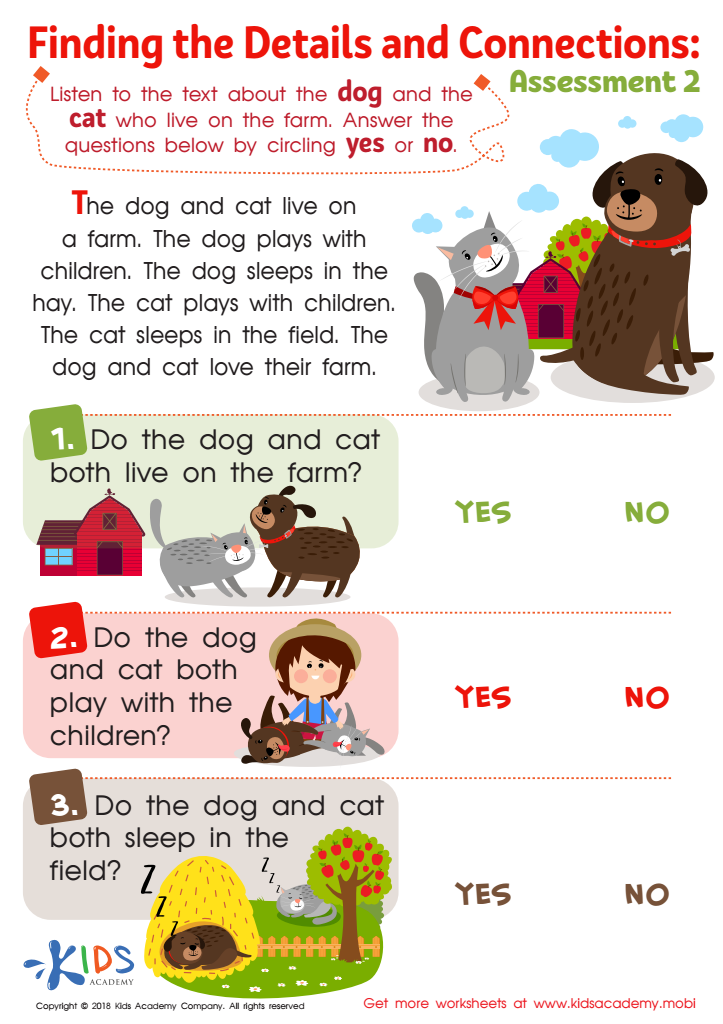

Finding the Details and Connections: Assessment 2 Worksheet
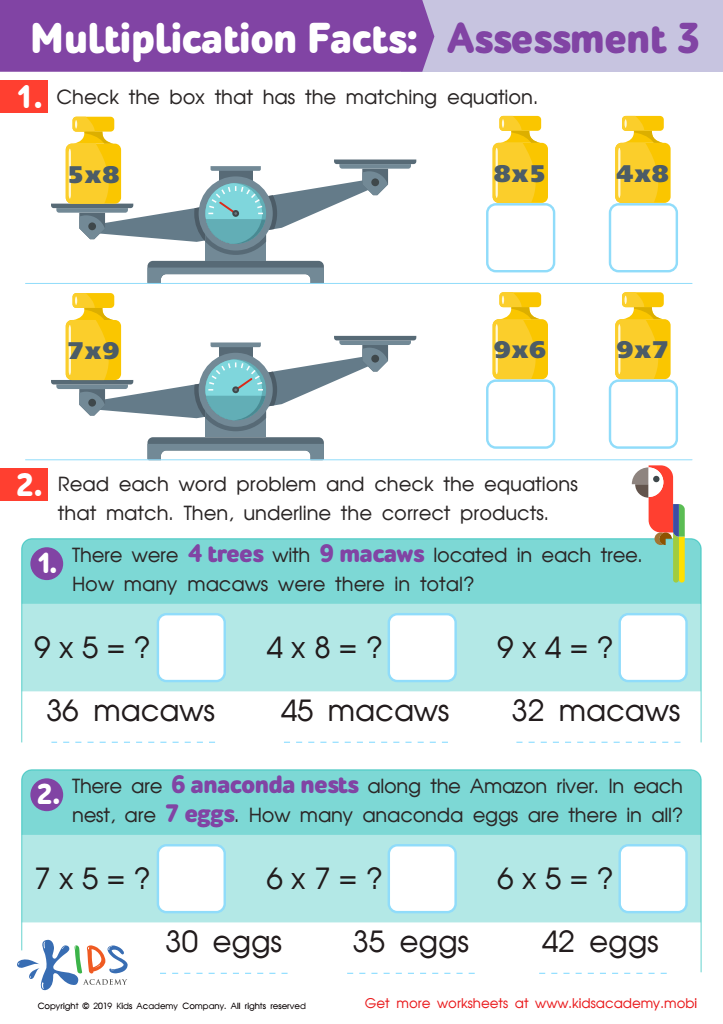

Multiplication Facts: Assessment 3 Worksheet


Vowel and Consonant Sounds: Assessment Worksheet


Space: Assessment 1 Worksheet
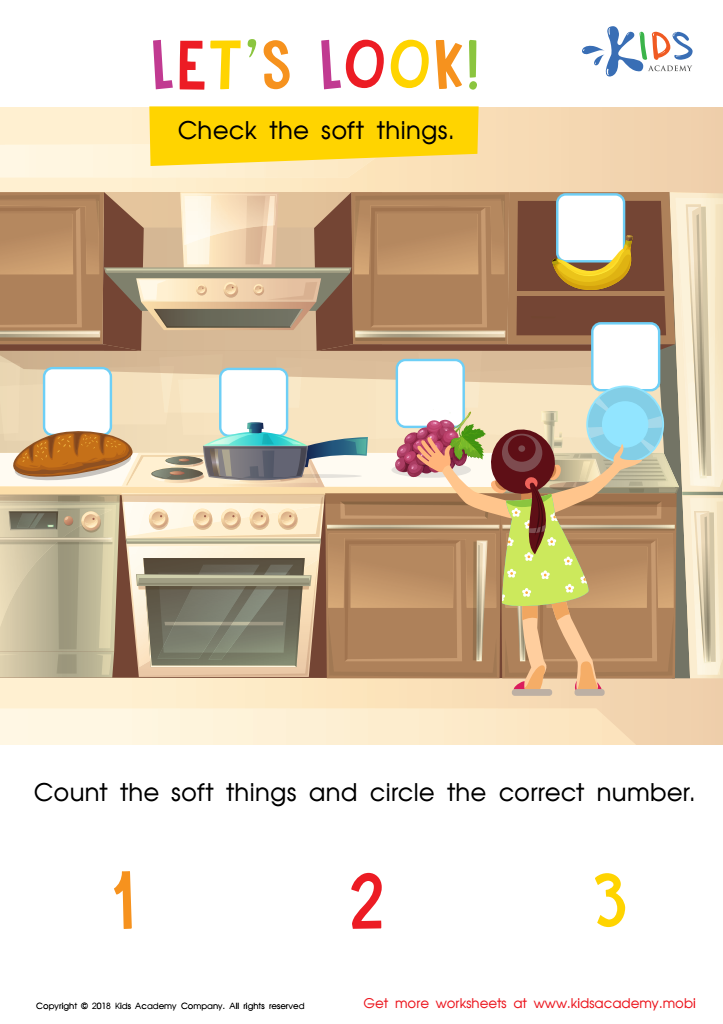

Let's Look! Assessment Worksheet
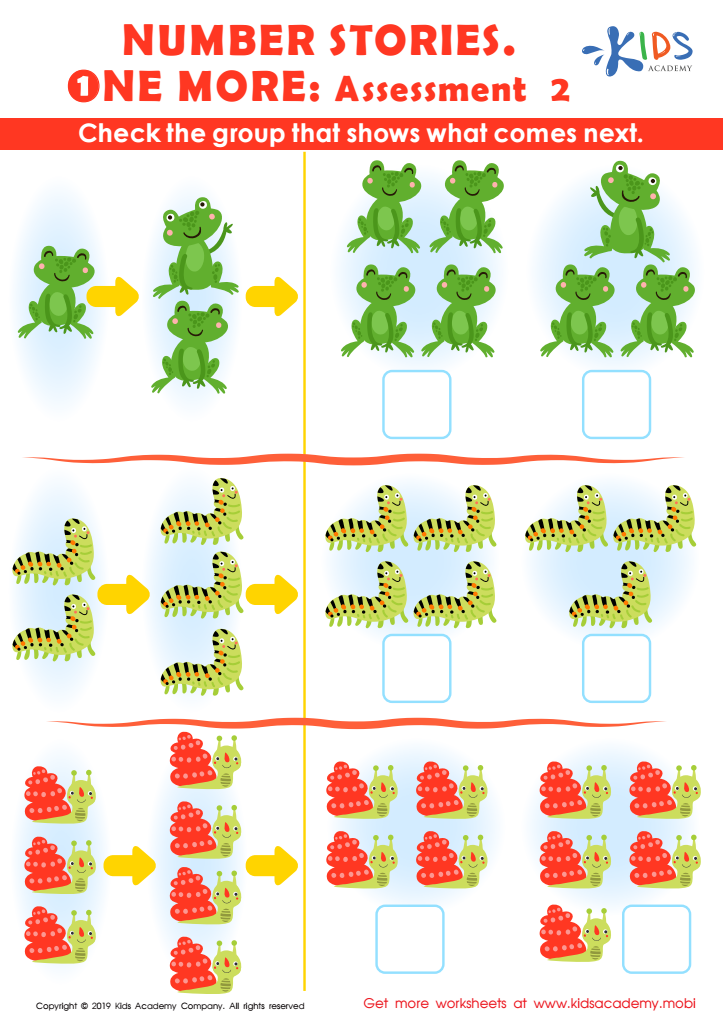

Number Stories One More – Assessment 2 Worksheet
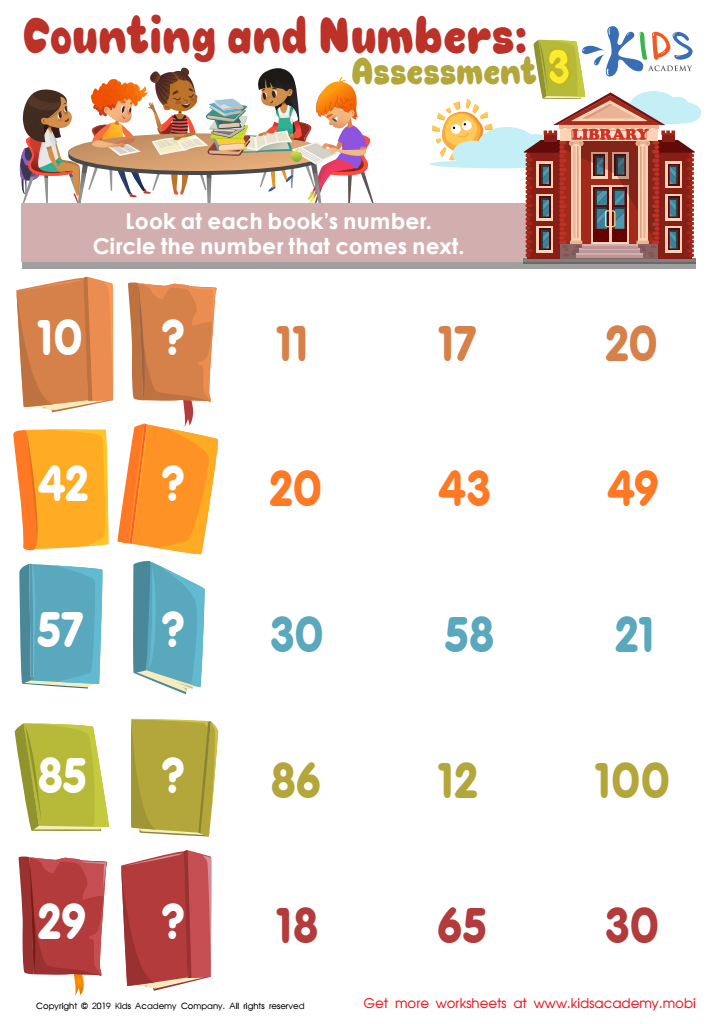

Counting and Numbers: Assessment Worksheet
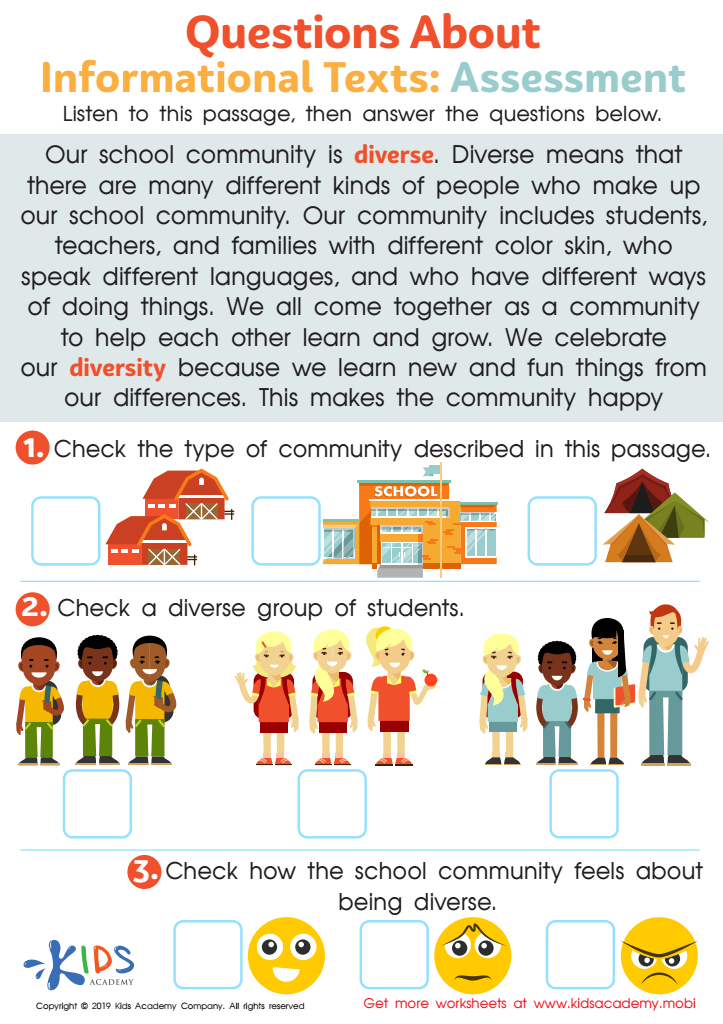

Questions About Informational Texts: Assessment 1 Worksheet
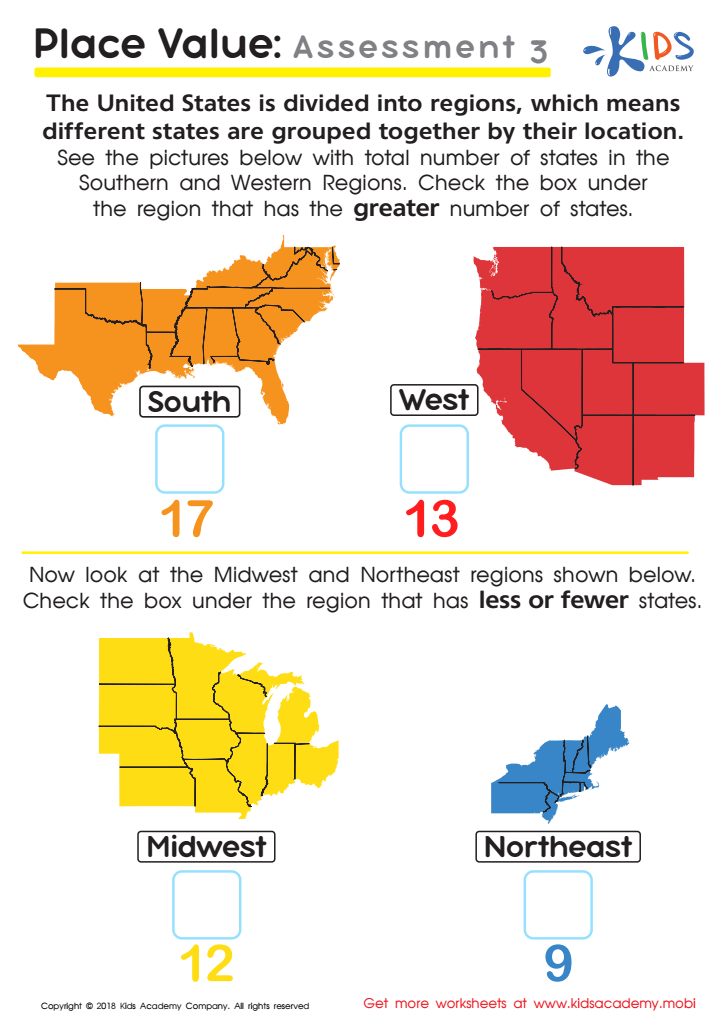

Place Value: Assessment 3 Worksheet
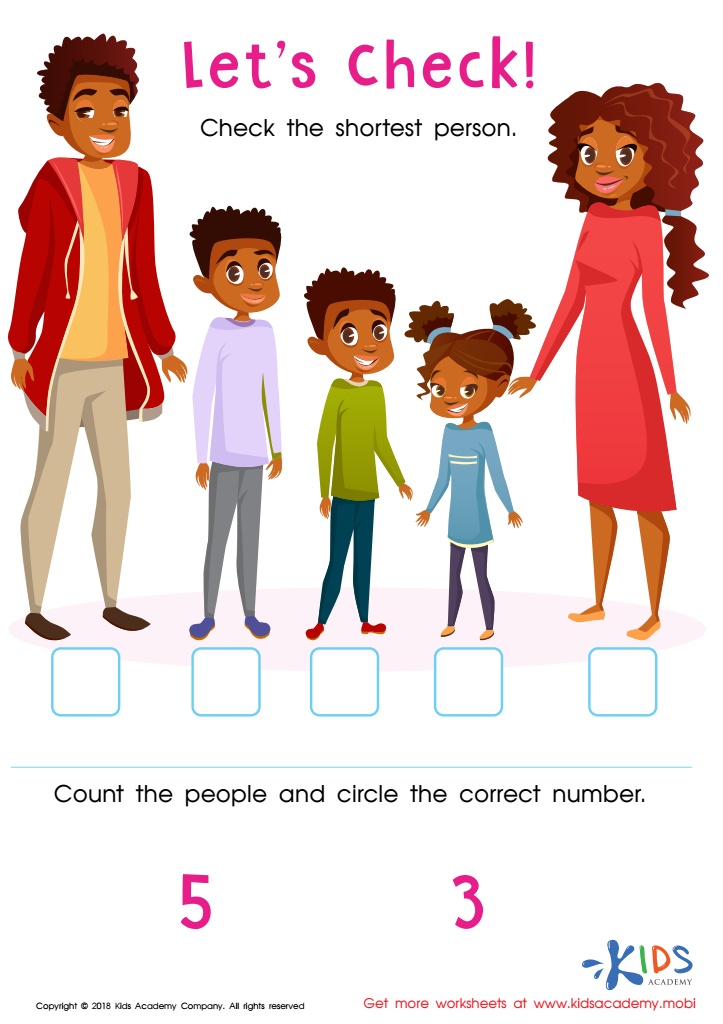

Let's Check! Assessment Worksheet
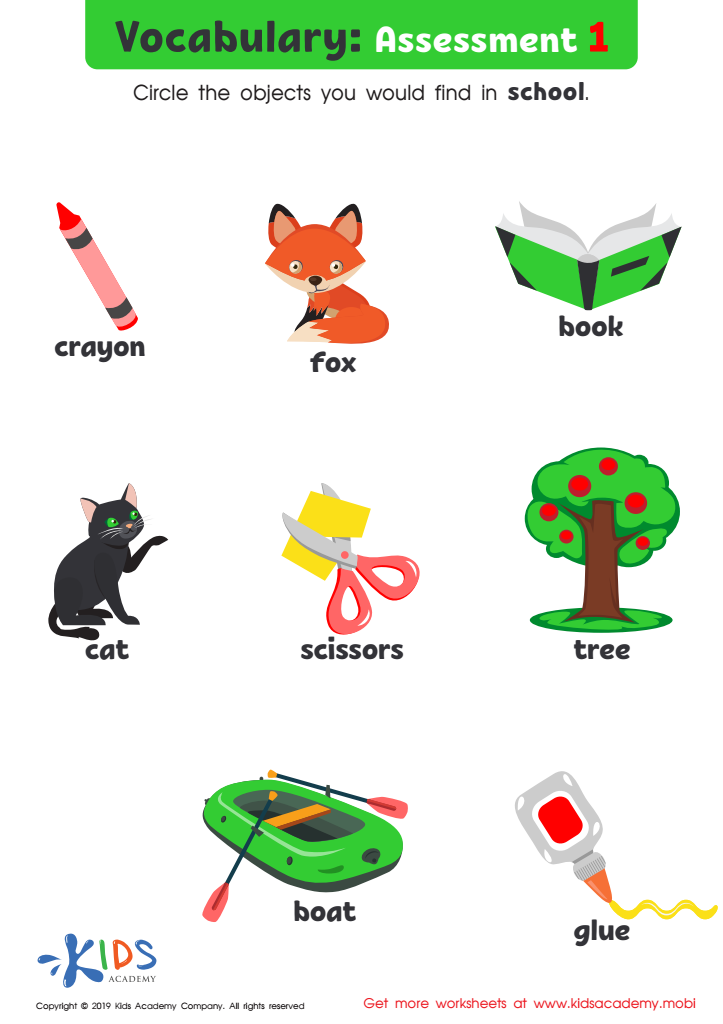

Vocabulary: Assessment 1 Worksheet
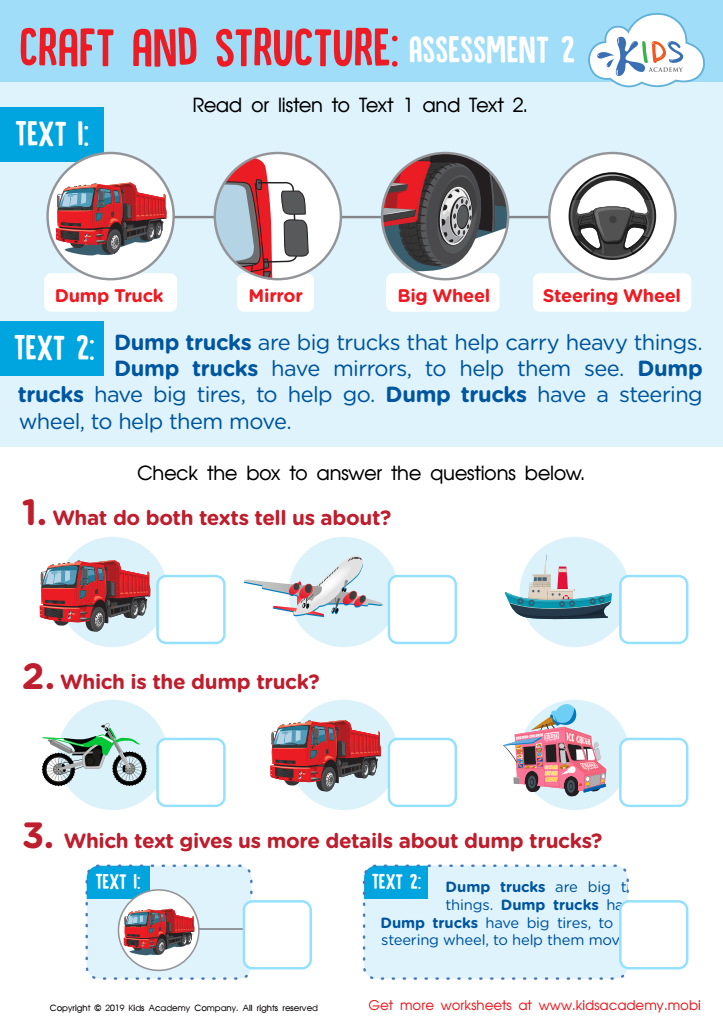

Craft and Structure: Assessment 2 Worksheet
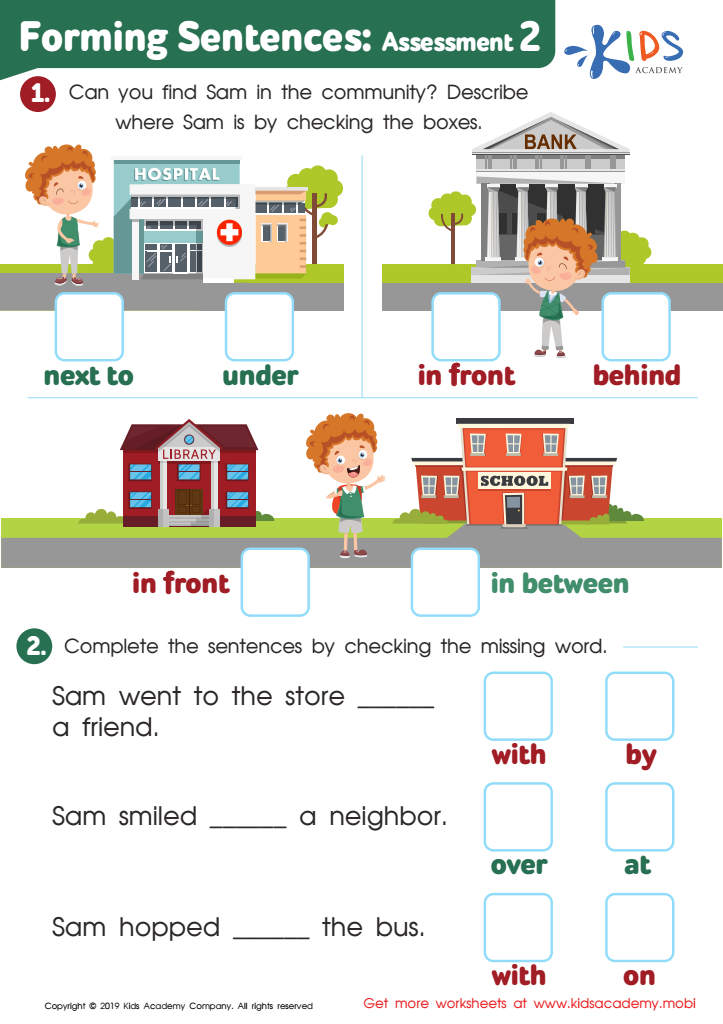

Forming Sentences: Assessment 2 Worksheet
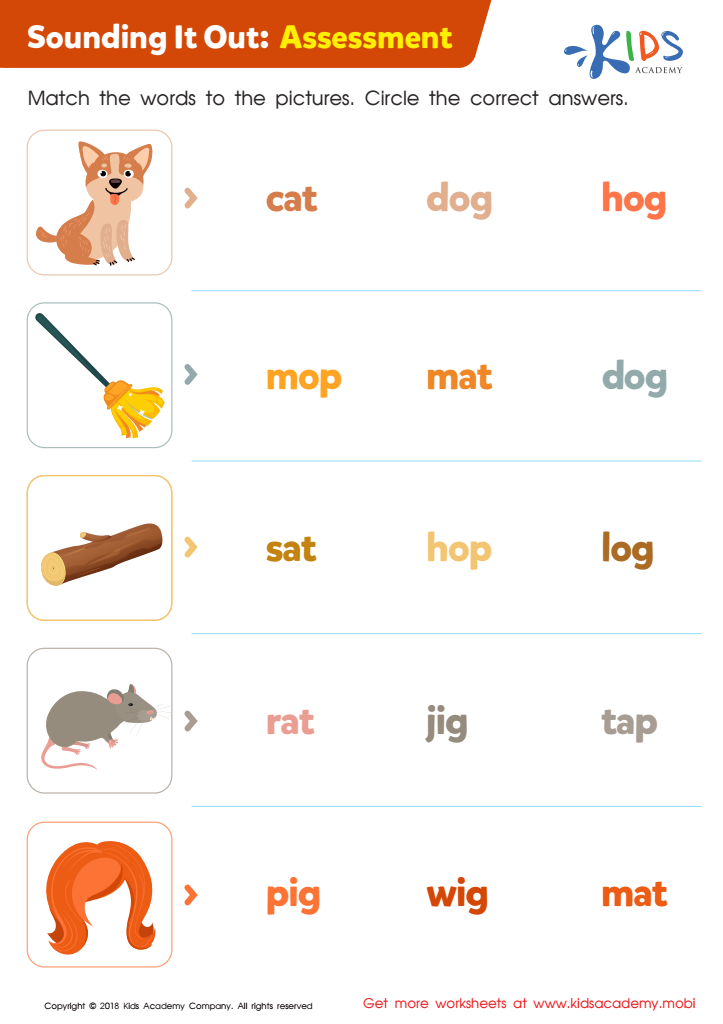

Sounding it Out: Assessment Worksheet
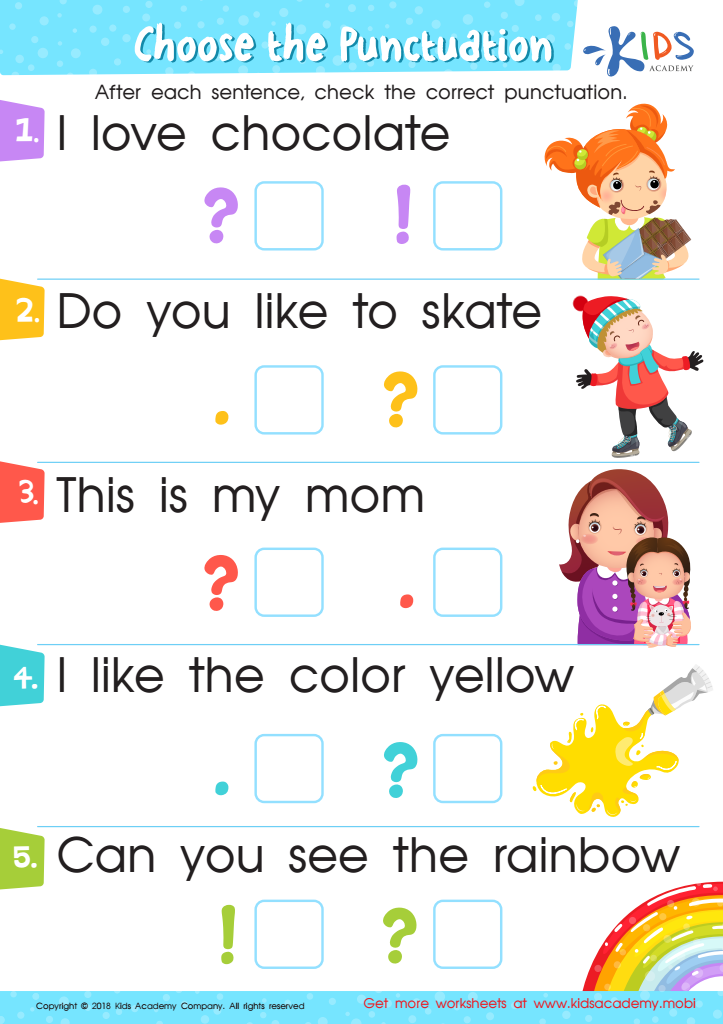

Choose the Punctuation: Assessment Worksheet
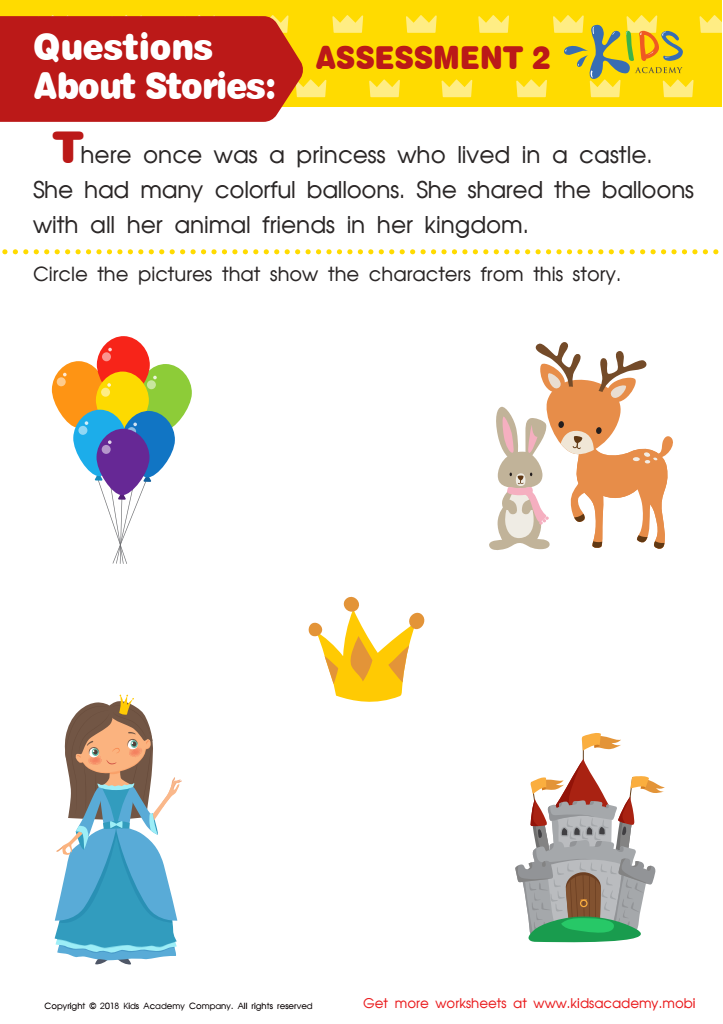

Questions About Stories: Assessment 2 Worksheet
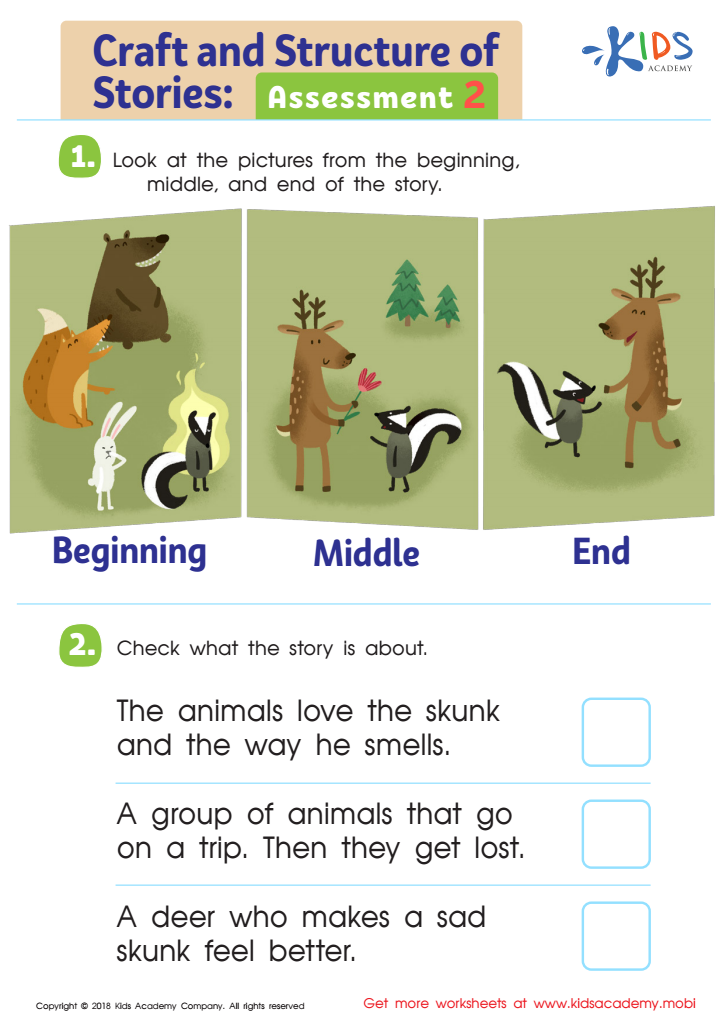

Craft and Structure of Stories: Assessment 2 Worksheet


Light and Sound: Assessment 2 Worksheet


Word Problems: Assessment 2 Worksheet
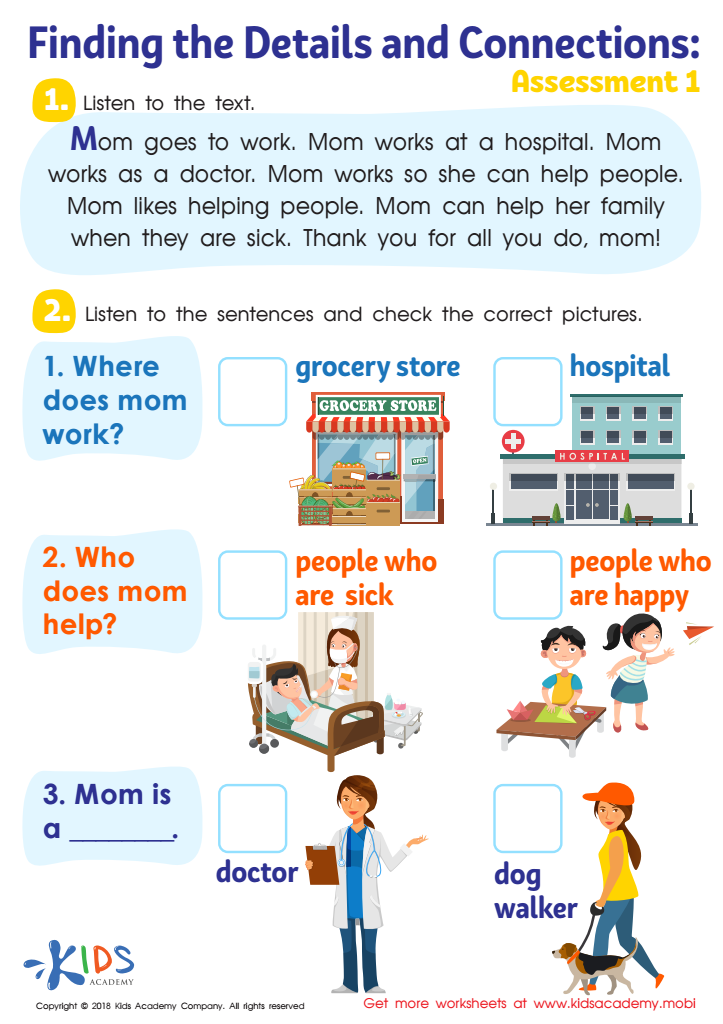

Finding the Details and Connections: Assessment 1 Worksheet


Long and Short Vowel Sentences: Assessment Worksheet
Normal Knowledge Check activities for ages 3-6 are vital tools for parents and teachers to assess and support young children's developmental progress. At this stage, children are rapidly grasping new concepts, forming relationships, and developing essential skills. Engaging in these activities not only helps in identifying a child's current understanding but also lays a solid foundation for lifelong learning.
These activities encourage cognitive development by promoting critical thinking, problem-solving, and creativity. They offer insights into a child's learning style and preferences, enabling parents and educators to tailor their approach for optimal growth. Furthermore, knowledge checks fortify communication skills, as children learn to express their thoughts and feelings clearly.
Moreover, participating in such activities fosters a strong parent-teacher partnership. Open dialogue about a child's strengths and areas for improvement helps create a supportive learning environment and allows for early intervention if needed.
Lastly, Normal Knowledge Check activities reinforce the idea that learning can be a fun and engaging experience. They motivate children to explore, ask questions, and develop a love for learning. When parents and teachers prioritize these activities, they contribute significantly to the child's holistic development and future educational success.

 Assign to My Students
Assign to My Students
















